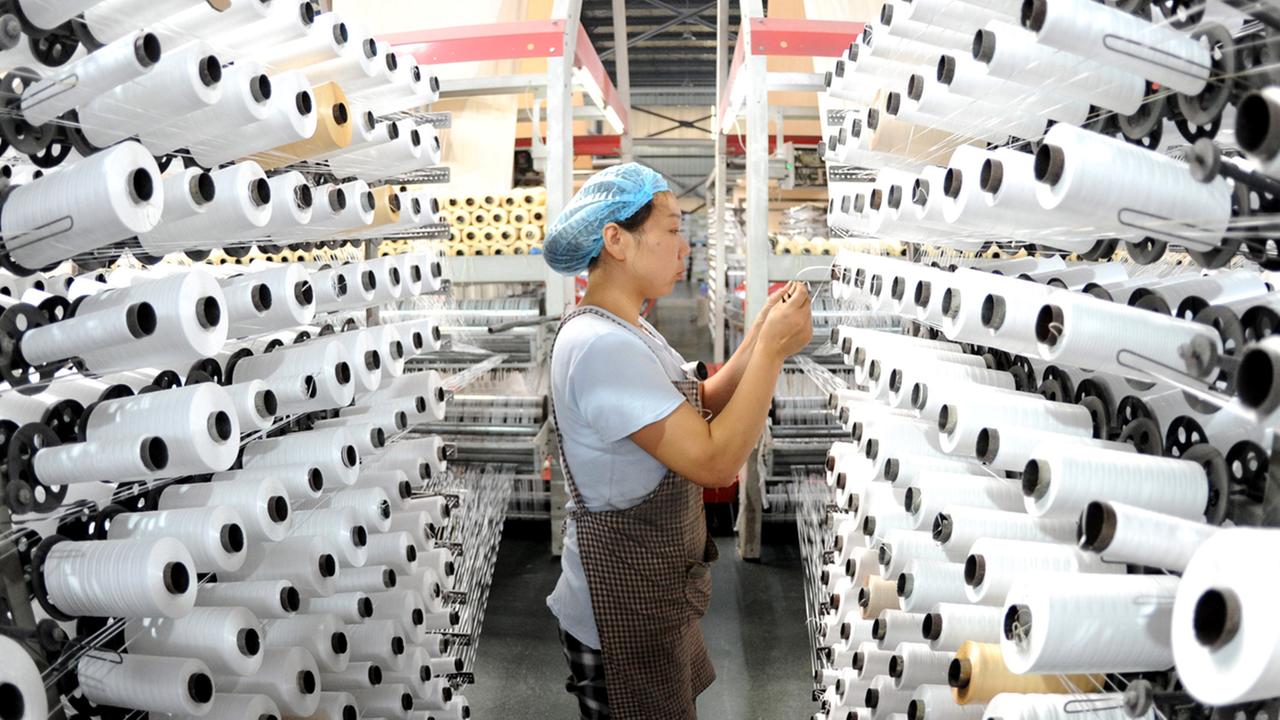analysis
China has changed significantly, but bankruptcies in the real estate sector, weak export demand and the population's reluctance to buy are causing problems for the economy. Can the country achieve its 2024 growth target?
China's economy has major problems – against this background, experts are by no means sure whether the country can achieve its current growth targets. Chinese Premier Li Qiang mentioned five percent in his annual report at the start of the People's Congress.
Since the end of the Corona measures at the end of 2022, China has struggled to regain its pre-pandemic economic strength. Last year, the People's Republic exceeded the official growth target of around five percent with an increase in gross domestic product (GDP) of 5.2 percent.
But China is struggling with major problems in the real estate sector, among other things. Prices for new buildings fell more sharply in 2023 than they did nine years ago, and many real estate companies are heavily indebted or are now bankrupt. The real estate sector is therefore no longer a growth engine.
No trend reversal Real estate sector foreseeable
Two thirds of Chinese households' assets are tied up in real estate. Houses and apartments would not only serve as an investment, but also as retirement provision, says Carsten Roemheld, capital market strategist at Fidelity International. China's economy depends largely on the upswing of this industry, and even the global economy relies to a certain extent on China's real estate boom, said the expert.
“A key driver of growth in the past is slowing down,” writes Helaba economist Patrick Franke in a country analysis. “Although the government is taking various measures to combat this, there are no signs of a real trend reversal here in 2024.” According to Franke, stabilization in this sector would probably be a political success.
reluctance to buy, Debt, deflation
In addition, many Chinese regional governments are massively in debt because they have invested in expanding the country's infrastructure. Another problem is deflationary tendencies. While high inflation is causing consumers' purchasing power to shrink in the majority of industrialized countries, deflation in the People's Republic is encouraging consumer restraint. This could set off an economically devastating downward spiral. Consumers often react to falling prices with reluctance to buy – it could get even cheaper.
“China's problems in the real estate market and weaker demand for Chinese exports are a burden, as are weak productivity and population aging,” says Angelika Millendorfer, head of the Emerging Markets Equities team at Raiffeisen Capital Management, summarizing the situation in China. Meanwhile, consumer and producer prices would fall .
“That's about the last thing a heavily indebted economy like China needs, because it tends to make debt repayment more difficult,” said Millendorfer. This is another negative aspect of deflation: unlike inflation, debt becomes more expensive.
Foreign trade problems
When looking at China economically, the export-oriented economy is also an important topic: “In addition to the domestic economic difficulties, China is also struggling with problems in foreign trade,” writes Helaba expert Franke. On the one hand, demand in the rest of the world for Chinese products, which had exploded during the pandemic, is gradually returning to normal. “On the other hand, political attempts in industrialized countries to increasingly cut China off from Western high-tech products are slowing down,” warns the Helaba expert.
In view of these risks, Bastian Hepperle, economist at Hauck Aufhäuser Lamp Privatbank, is skeptical and considers the growth target to be ambitious: “This can only be achieved with further support measures from the government and central bank. However, the fundamental problems such as the real estate crisis and the risks from high levels of debt remain unresolved,” he told Reuters. It will be a difficult road to repeat the five percent growth in 2024, the Financial Times quotes analysts from ING.
China's economy in transition
However, economists' consensus estimates for Chinese growth this year are not really far from the current growth target. Analysts predict in a survey by the Bloomberg news agency that the economy will probably grow by at least 4.6 percent this year.
The International Monetary Fund (IMF) also expects China's economic growth to be 4.6 percent this year. In the medium term, according to the IMF economists, it is expected to weaken to around 3.5 percent in 2028.
The workbench becomes a Technology location
However, it should not be overlooked that China's economy is changing. “The pursuit of speed has given way to a change in the growth model,” Hu Yuexiao, chief economist at Shanghai Securities, also told Reuters. What was once the world's workbench that exported cheap mass-produced products has long since become a technology location.
Jian Shi Cortesi, Asia and China expert at GAM Investments, highlights China's “impressive progress in technology and innovation.” Historically, nations that actively prioritize technological development rarely experience economic decline, Cortesi points out. China's focus on innovation and technological leadership positions the country for sustainable growth.




